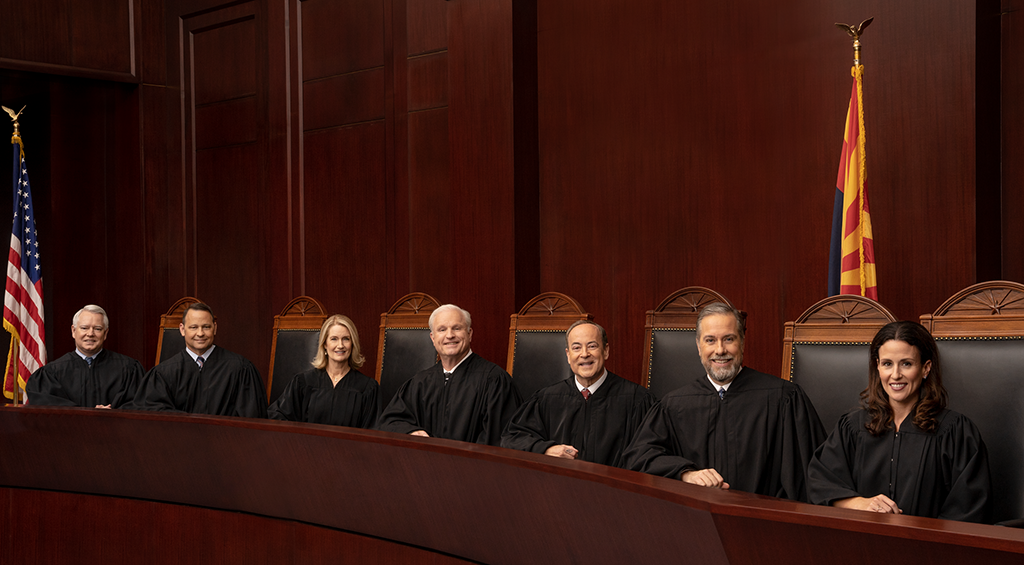The Supreme Court
The Supreme Court’s primary judicial duties under Article VI, §5 of the Arizona Constitution, are to review appeals and to provide rules of procedure for all the courts in Arizona. It is the highest court in the state of Arizona and is often called the court of last resort.
The Supreme Court has discretionary jurisdiction, meaning that the court may refuse to review the findings of the lower court. Cases in which a trial judge has sentenced a defendant to death, however, automatically go to the Supreme Court for review.
Supreme Court Justices
Seven justices serve on the Supreme Court for a regular term of six years. One justice is selected by fellow justices to serve as Chief Justice for a five year term. In addition to handling case work like the other justices, the Chief Justice oversees the administrative operations of all the courts in Arizona.
The Supreme Court
- may choose to review a decision of the court of appeals when a party (the plaintiff or defendant in the original case) files a petition for review;
- always hears the appeal when the superior court imposes a death sentence;
- regulates activities of the State Bar of Arizona and oversees admission of new attorneys to the practice of law;
- reviews charges of misconduct against attorneys, and has the authority to suspend or disbar them; and,
- serves as the final decision making body when disciplinary recommendations are filed against Arizona judges by the Commission on Judicial Conduct .
The Court’s Role in the Impeachment Process
Impeachment is a political process designed to deal with public officials accused of committing high crimes, misdemeanors, or misconduct in office. The person is charged, tried and, if convicted, removed from office.
The Chief Justice of the Supreme Court presides over Senate impeachment trials, but renders no decision as to the guilt or innocence of the public official on trial. Formal charges for an impeachable offense are initiated by a majority vote of the Arizona House of Representatives. Conviction for the impeachable offense requires a two-thirds vote in the Senate. Upon conviction, a public officer is removed from office. The role of the Supreme Court in the impeachment process is set forth in Article VIII, Part 2, § 1 of the Arizona Constitution.
Court Personnel
The Arizona Constitution authorizes the Supreme Court to appoint a clerk of the court and assistants. According to A.R.S. § 12-202, the clerk shall attend sessions of the court, issue legal paperwork, enter all court orders, judgments and decrees, keep other books of record and perform other duties as required by law or the court. The clerk’s office maintains the court’s official files and assists in scheduling matters for decisions and oral arguments. The clerk’s office is also responsible for publishing and distributing the court’s written opinions.
Supreme Court Justice Qualifications
A Supreme Court Justice:
- Must be admitted to the practice of law in Arizona and be a resident of Arizona for the 10 years immediately before taking office;
- May not practice law while a member of the judiciary;
- May not hold any other political office or public employment;
- May not hold office in any political party;
- May not campaign, except for him/herself; and,
- Must retire at age 70.
